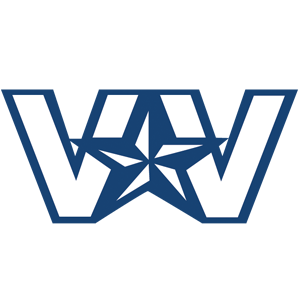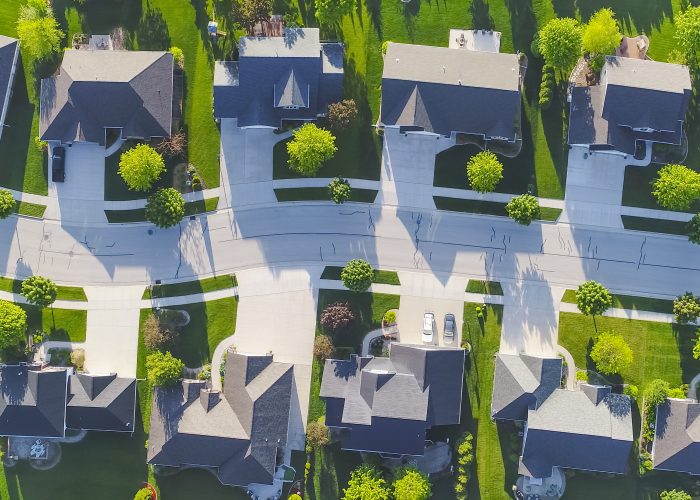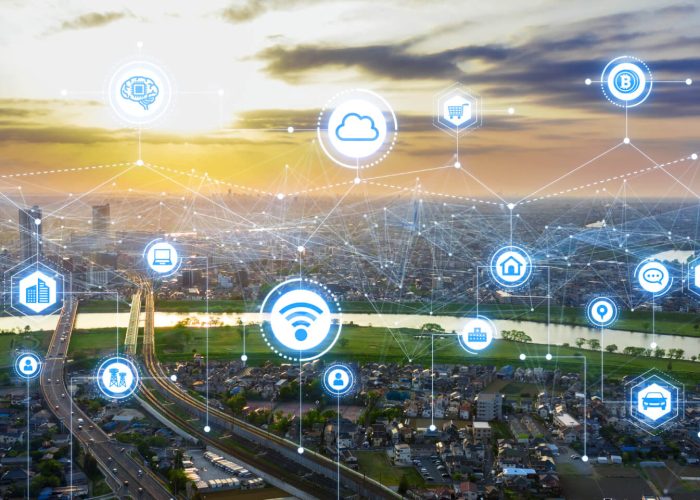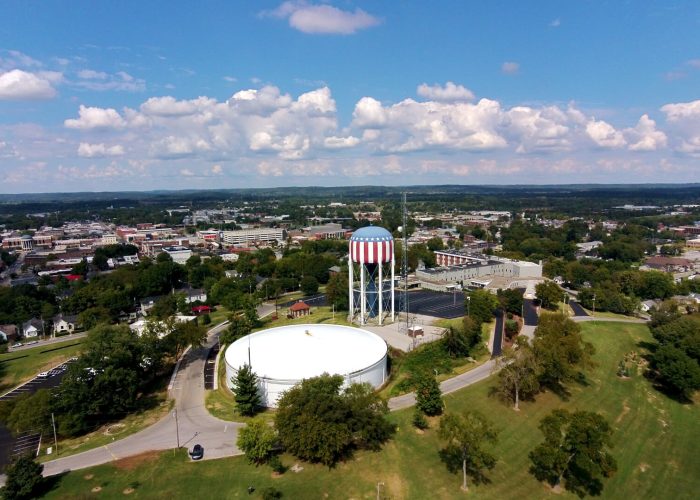Fast leak detection. Remote monitoring. Water revenue optimization.
Smart electronic water meters reduce nonrevenue water loss for public works departments by enabling more efficient meter readings. Improved data visibility further allows municipalities to understand water usage patterns, identify billing inconsistencies, encourage water conservation behaviors, and expand revenue opportunities.
Smart water meter solutions can start saving your city money while positioning you for the future.
Understanding Smart Water Meters
What is a Smart Water Meter?
A smart water meter, or digital water meter, is a modern device that measures and monitors water consumption in homes, businesses, and other facilities. Unlike traditional water meters that rely on manual readings by utility personnel, smart water meters have various sensors and communication capabilities that allow for automated data collection and transmission.
How Do Smart Water Meters Work?
Digital water meters are wireless and rely on solid-state technology in compact, weatherproof housing. They have sensors that measure the water flow as it passes through them. These sensors can detect even the smallest amounts of water usage, making them more accurate than traditional meters. The meters collect data about water usage continuously and are transmitted via wireless or cellular connections to the water utility for monitoring and billing.
With remote monitoring and real-time water usage data, utilities can proactively identify unusual patterns in water usage. For example, a sudden and unexpected increase in water flow might indicate a leak in the plumbing system. The meter can send alerts to notify homeowners or the utility company about potential leaks. With these efficiencies, water utilities can divert personnel resources from manual meter readings to other key areas, safeguarding against labor capacity issues.

Are There Different Types of Smart Water Meters?
There are several different types of smart water meters, each with different features and capabilities. The choice of meter type depends on factors such as the specific needs of the utility company, the level of data granularity required, and the available infrastructure for data communication. Here are some common types of smart water meters:
- Ultrasonic Meters: Ultrasonic meters use sound waves to measure water flow. They are highly accurate and can measure water flow bidirectionally (forward and reverse flow). These meters are often used in applications where precise measurements are essential, such as industrial settings.
- Electromagnetic Meters: Electromagnetic meters use magnetic fields to measure water flow. They are known for their accuracy and are often used in larger pipes and commercial or industrial applications.
- Vortex Flow Meters: Vortex flow meters utilize the vortex shedding principle to measure water flow. They are suitable for clean and dirty water applications and can be used in smart metering systems.
- Hybrid Meters: Some smart water meters combine multiple measurement technologies, such as ultrasonic and electromagnetic, to enhance accuracy and versatility.
What are the Benefits of Smart Water Meters?
Smart water meters offer numerous benefits to water utilities and their customers. They help improve water management, reduce water waste, enhance customer service, and contribute to the efficient and sustainable use of water resources. These benefits make them an important tool in modernizing water infrastructure and ensuring the availability of clean water for communities.
The top ten benefits of smart water meters include:
- Accurate Billing: Smart water meters provide precise and real-time data on water usage. This leads to accurate billing, reducing non-revenue water. Customers are billed for the exact amount of water they use.
- Leak Detection: Smart water meters can detect abnormal water usage patterns, which will identify leaks within a property’s plumbing. Some smart water meters can also detect leaks within the water distribution system. Early detection allows for timely repairs and prevents water loss.
- Water Revenue Optimization: Reducing the amount of unbilled water due to accurate meter readings and timely leak detection can increase utility revenues.
- Reduced Operational Costs: Automated data collection and remote monitoring capabilities reduce the need for manual meter reading, saving time and labor costs for water utilities.
- Data Analytics: Smart water meters generate a wealth of actionable data that utility companies can analyze to identify trends, optimize water distribution, and plan infrastructure upgrades more effectively. This data-driven approach can lead to more efficient operations.
- Remote Access and Control: Utility companies can remotely manage water services, making disconnecting or reconnecting services easier. For example, remote shut-offs can be used during winter storms to prevent significant water loss and property damage due to freezing temperatures.
- Scalability: Most AMI technologies allow for real-time water data and provide a platform to enhance other services, such as distribution leak detection, pressure monitoring, water quality, and district metering.
- Real-Time Monitoring for Customers: Water customers can monitor their water usage in real-time through online portals or mobile apps, empowering them to make informed decisions about their water consumption.
- Longevity and Reliability: Smart water meters are often designed to be more durable and reliable than traditional meters, reducing maintenance and replacement costs for utility companies.
- Water Conservation: Smart meters encourage water conservation by providing consumers with real-time information on their water usage. Customers can identify and address excessive water usage, leaks, or wasteful habits, leading to reduced water consumption. Promoting water conservation helps ensure a stable water supply for growing populations.
Case Study: The City of Jacksonville, TX
In 2018, the City of Jacksonville had aged water meters and inefficient metering. They sought an energy savings performance contract to upgrade to smart water meters. Once implemented, the smart meters and AMI technology provided the City and residents with more visibility into their water usage with secure, online monitoring tools.
A critical part of the infrastructure was adding a radio-controlled auto-shut-off feature to shut off all residential meters during a natural disaster. This feature proved invaluable during the Texas freeze in February 2021. When temperatures dropped well below freezing, the City began auto-shut-offs. This saved the City millions of gallons of potential water loss and prevented devastating damage to the water pipe infrastructure.
Greg Smith, the Former City Manager, commented at the time, “If it were not for this project, our water loss from this storm would have been staggering, and our residents could have seen a much worse situation. But with this project, we were able to proactively save water and prevent countless homes from extended water damage.”
As a result of this project, the 2021 Smart 50 Awards program recognized the City of Jacksonville project as one of 50 projects globally for its innovation and community impact.
Advanced Metering Infrastructures (AMI)
What is AMI?
AMI refers to the sophisticated and integrated system smart water meters use to collect, manage, and analyze water meter data. Key components of an AMI system include smart water meters, a communication network, data management software, customer portals, remote meter monitoring and control, security measures, and billing integration.
What Types of Communication Technologies Does AMI Use?
Advanced metering infrastructures uses various communication technologies to collect and transmit data from smart meters to central data systems. The choice of communication technology can depend on factors like geographic terrain, available infrastructure, budget, and the desired data reliability and speed level. Below are some common communication technologies used in AMI:
- Radio Frequency (RF):
- RF Mesh: In this setup, smart meters form a mesh network to communicate with neighboring meters. Data hops from one meter to another until it reaches a collector or data concentrator, which forwards the data to the central system. RF mesh networks are known for their reliability and can cover large areas.
- RF Fixed Network: In this configuration, smart meters communicate directly with fixed access points or base stations. These access points relay data to the central system. RF fixed networks are suitable for urban and suburban areas.
- Cellular Networks (4G and 5G): Smart meters can use cellular networks, much like mobile phones, to transmit data. This is particularly useful in remote or rural areas where other communication options may be limited. The availability of high-speed cellular networks like 4G and 5G has improved the reliability and speed of data transmission.
- LoRaWAN and LPWAN:
- Low-Power Wide-Area Network (LPWAN) technologies like LoRaWAN are suitable for long-range, low-power data transmission. They can be used when the meters are spread over a wide area.
- Hybrid Networks:
- In some cases, a combination of communication technologies may be used within an AMI system. For example, RF mesh networks may be used for meter-to-meter communication, while cellular or Ethernet connections are used to backhaul the central system.
How to Get Started With a Smart Water Meter Project
Funding with a Performance Contract
To help finance water meter replacement projects without incurring capital spending, public owners can use energy savings performance contracting legislation (ESPC) through an accredited energy savings company or ESCO. This flexible funding mechanism enables municipalities to utilize the increase in billable revenues, energy savings, operational savings, and avoided capital costs to pay for critical infrastructure improvements, including water meter efficiency improvements. As a result, no up-front capital investment is required. Project costs are 100% financed and are repaid with guaranteed savings and revenue increases.

Selecting a Qualified Partner
If smart water meters sound like a great solution for your city or town, the best approach is to engage with a licensed, qualified ESCO (energy services company) with a track record of successful projects. Better, consider selecting a NAESCO-accredited design-builder. They offer sole responsibility for the design and installation of the project. And if done through a performance contract, they are responsible for any and all performance guarantees. They will serve as a one-stop shop for the project, providing project design, cost estimation, and construction management from start to finish. This approach ensures single-source accountability, offering peace of mind from a single, unified contract.
Implementing a Smart Water Meter Project
After selecting an ESCO provider, the project begins with an energy and utility audit, where the ESCO identifies opportunities and potential savings areas and then recommends any number of energy conservation measures and water revenue optimization options. Together, the utility and the ESCO agree upon the project scope. The ESCO guarantees minimum energy savings, increased water revenues and efficiencies, and operational savings to cover the project’s cost. Once the project is completed, the ESCO performs measurement and verification of the project’s performance to ensure guarantees are achieved or exceeded.
Related Reading: Why consider a water meter replacement project?
Additional Success Stories
We’ve been helping clients upgrade to smart water meters since 2018. Our team of experts has worked with cities of all sizes to upgrade infrastructure and take a step forward with AMI. A few projects include:
- City of Beeville: The city replaced all 5,192 existing meters with smart water meters and a secure AMI network. The technology has provided more visibility into their water usage and resources with remote monitoring.
- City of Waxahachie: The city installed 14,413 smart water meters to ensure it could more accurately track water usage and reduce manual work processes.
- City of Clyde: In addition to water treatment plant upgrades, the city replaced 1,600 meters with smart water meters to keep up with steady growth and proactively improve its aging water service infrastructure.
The Future of Smart Water Meters
Evolving technologies
Smart, wireless water meter technology continues to evolve, driven by advancements in sensors, communication systems, data analytics, and sustainability goals. Some evolving technologies and trends include IoT integration, advanced leak detection, battery efficiency, and blockchain for data security.
Integration with IoT and Smart City Initiatives
Smart water meters can be integrated with other smart city technologies to enhance water resource management, promote environmental responsibility, and contribute to urban areas’ overall livability and sustainability. This integration requires effective data management, secure communication protocols, and collaboration among city departments and stakeholders to achieve its full potential. A few examples of AMI integration with smart city initiatives include:
- Smart Grids: AMI can integrate with smart grids to optimize water distribution. Smart meters provide real-time data on water usage, helping utilities manage water resources more efficiently and reduce water loss in the distribution network.
- Environmental Monitoring: Smart water meters within AMI systems can contribute to environmental monitoring by providing data on water usage patterns. This information helps cities assess the impact of water consumption on local ecosystems and identify potential areas for conservation.
- Waste Management: Integration with waste management systems is not only about waste collection but also includes monitoring water usage in recycling and wastewater treatment processes. AMI data can help optimize water consumption in these processes, reducing costs and environmental impact.
- Public Safety: During emergencies like floods or droughts, AMI data can be crucial for assessing water availability and quality. This information aids emergency response efforts and ensures residents can access safe drinking water during crises.
- Environmental Sustainability: By encouraging water conservation and efficient resource management, AMI contributes to the environmental sustainability of a city. It aligns with broader sustainability goals by promoting responsible water usage.
- Data Analytics and Visualization: Integration with data analytics platforms allows cities to analyze water consumption data from AMI alongside other urban data sources. This holistic view helps identify trends and correlations that inform better decision-making.
- Urban Planning: AMI data can support urban planning by providing insights into water demand, usage patterns, and infrastructure requirements. This information aids in designing water distribution networks that meet the needs of a growing population.
- Resilience and Disaster Recovery: AMI systems for water metering are vital during emergencies like water main breaks or contamination incidents. Real-time data helps utilities respond promptly, maintain essential services, and ensure public health and safety.
- Citizen Engagement: Integrating AMI data into citizen engagement platforms allows residents to access information about their water usage and conservation efforts. This transparency fosters community involvement in sustainable water practices.
Get Started Today
Smart water meters delivered through proven AMI technologies are a safe approach to modernizing commercial and residential water meters. They are an essential step in becoming a smart city or town. The automated meter system ensures water usage is accurately and efficiently tracked, saving time and money for water utilities and their customers.
Interested in learning how much your city or town could be saving? Contact us today, and our talented team will help uncover your potential savings with smart water meters.
Hear From Satisfied Clients.








